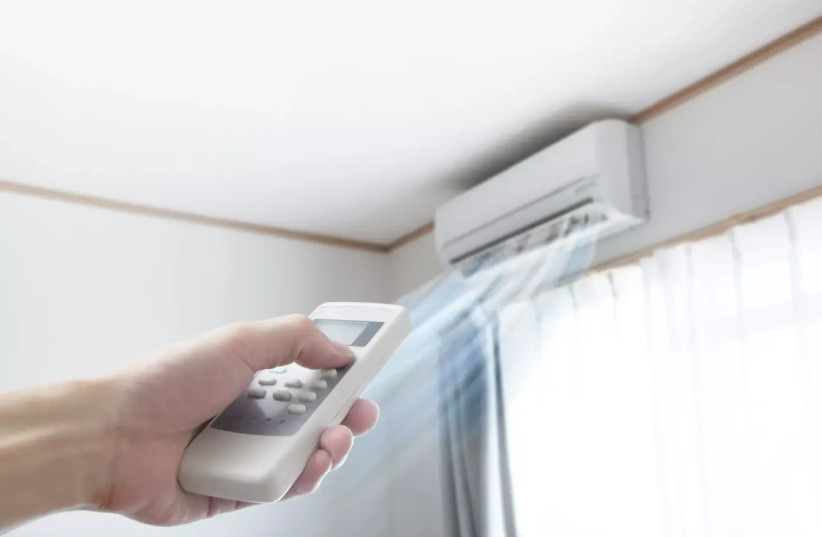Most Israeli homes regard air conditioners as necessary and electric fans as inadequate to cool them off, even if they live in the northern part of the country. In Europe, this is not so – but with global warming, they had better wake up.
A new study by researchers at the University of Ottawa in Canada throws cold water on the idea that fans can effectively cool you down during extremely hot weather events.
With severe heat waves becoming more frequent due to climate change, there’s a growing need for safe and accessible ways to keep people calm, especially vulnerable populations like older adults.
Fans are often recommended as cheap and easy solutions, but the new study suggests they might not be as helpful as previously thought.
Postdoctoral fellow Robert Meade led the research, which was conducted at the university’s human and environmental physiology research unit, which is led by physiology professor Glen Kenny of the Faculty of Health Sciences.
The study, entitled “A critical review of the effectiveness of electric fans as a personal cooling intervention in hot weather and heatwaves,” was published in the Lancet Planetary Health journal.

Canada affected by global warming also
Even Canada is affected by global warming. An unprecedented heat dome covered the Pacific Northwest area of North America in June 2021, breaking national temperature records in Canada by almost five °C and resulting in the deaths of more than 1000 adults, most of whom were aged 65 years or older.
“Fans improve sweat evaporation, but this effect is not strong enough to significantly lower your body’s internal temperature when it’s already hot (above 33-35°C).
Fans provide even less cooling benefits in older adults who may have a reduced ability to sweat,” Meade explained. “In fact, even in younger adults, fans provide only a small fraction of the cooling power of air conditioning.”
The study recommends that health organizations continue to advise against relying on fans during extreme heat events, especially for older adults and other groups at higher risk of heat stroke and other adverse health events during heat waves.
Instead, the emphasis should be on providing access to better cooling solutions, such as air conditioning, and exploring ways to make these options more accessible and environmentally friendly.
The research was conducted using “human-heat-balance” modeling techniques developed nine years ago.
By extending these models to estimate core temperature under a range of conditions and modeling assumptions, the authors were able to compare the expected effects of fan use under a wide range of scenarios.
“Results from the 116,640 alternative models we produced in sensitivity analyses indicated that fans likely do not significantly reduce core temperature in high heat or match air conditioning cooling.
Comparisons with more advanced modeling techniques and laboratory heat wave simulations supported this conclusion,” added Meade.
“Keeping indoor temperature cool is important for vulnerable individuals, but cooling strategies like air conditioning can be costly and harmful to the environment.
It is crucial that we improve the accessibility and sustainability of air conditioning and other forms of ambient cooling to protect those in need,” said Meade.
“Fans can still play an essential role since they can be effective for cooling at lower temperatures, meaning we don’t have to set our air conditioners so low.
However, when it gets really hot, a fan alone is not going to cut it.”
